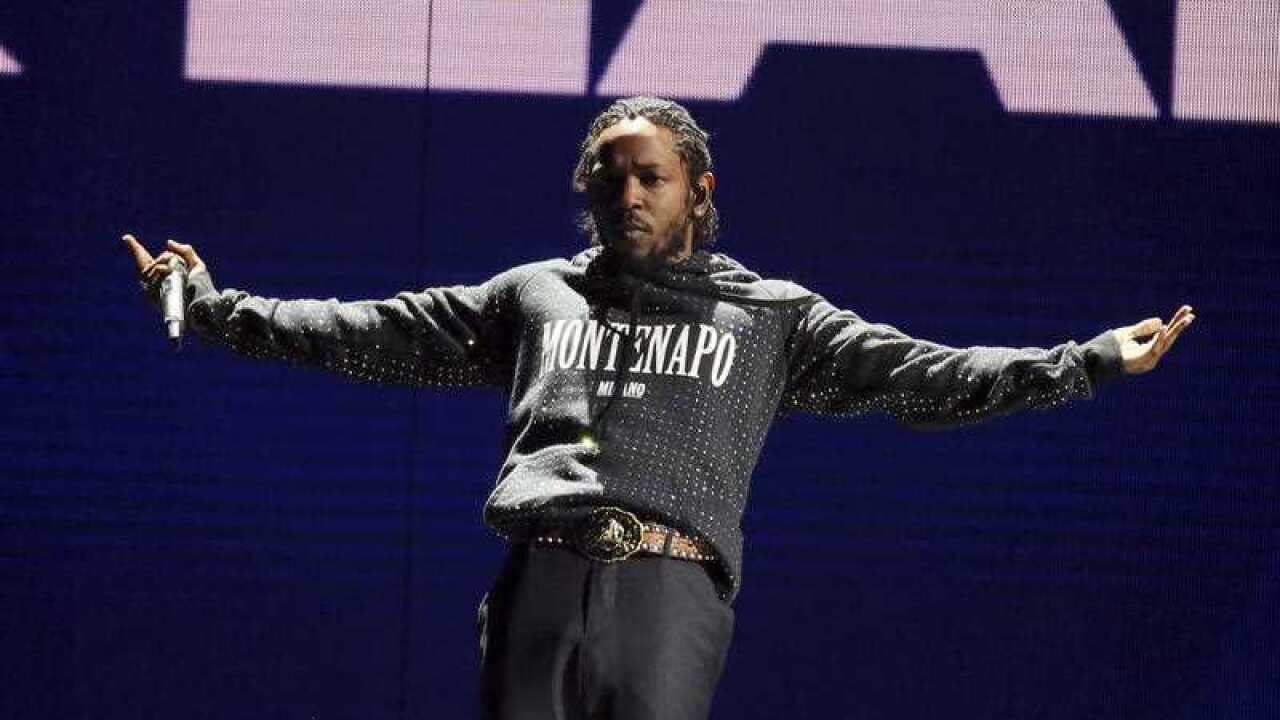US rapper Kendrick Lamar’s kicks off this week, culminating in a headline appearance at the music festival .
Lamar’s most recent album, DAMN., not only topped the charts in the US, Australia, and around the world, but was also the first rap album to be awarded the prestigious . Lamar’s historic victory provides hip hop with a level of critical recognition that has long escaped it, even as its popularity has spread from black and Latino neighbourhoods to white America and beyond.
However being a hip hop fan in Australia is not straightforward. For many, rap’s narratives of urban American hustle feel worlds removed from life here. These issues come to fore around the question of whether white fans in Australia should rap along to the “n-word”.
In May this year, at the Hangout Music Festival in Alabama, to rap over his song M.A.A.D city. The young woman began to rap with the confidence of a true fan, delighted to be sharing space with him. “Man down, where you from, n—a Fuck who you know, where you from, my n—a?” she rapped, until Lamar abruptly cut the music.
“Woah, you gotta bleep one single word, though” he cautioned. “Did I not –” she asked, clearly embarrassed by her mistake. “You didn’t,” Lamar replied. The woman tried to continue but faltered and was ushered off stage to a smattering of uneasy applause.
The n-word can be found throughout Lamar’s music, including his hits HUMBLE., which in 2018, and Alright, from his previous album To Pimp a Butterfly. After the incident in Alabama, , if the word is so bad, why should anyone be using it? But in spite of hip hop’s ubiquity in mainstream culture, and the existence of local versions in Australia (such as in Indigenous and white working class cultures), hip hop remains specific to black America - and the n-word is one of its vital gatekeepers.
Most hip hop fans understand that when a black American rapper says “n—a”, they are reclaiming the word from its to degrade and humiliate enslaved Africans in antebellum America. Just as some feminist movements have reclaimed words like “slut,” and LGBT communities have reclaimed the homophobic slur “queer,” “n—a” has become part of the exclusive lexicon of modern day black America.
White people have a role in hip hop, but it is overwhelmingly a passive one.
The n-word is one crucial means through which hip hop reminds white listeners of the chasm of culture and experience between them and black America. Whether white American listeners are compelled – like the stereotypical white suburban youth devouring gangsta rap – or repelled by this, they cannot ignore it.
White people have a role in hip hop, but it is overwhelmingly a passive one – to listen, to take criticism, to be, at times, the butt of a joke or the target of aggression. And, most importantly, to learn. The presence of white people in hip hop, in particular their avid listenership, is part of what lends the n-word its ongoing subversive power in this space.
Indeed the self-deprecating white rapper Lil Dicky addresses this issue head on in his song Freaky Friday. Taking the film ’s classic “body swap” trope, Dicky has R&B star Chris Brown sing as if he were Lil Dicky, finally allowed to engage in hip hop culture on a level unreachable to the white hip-hopper. Brown, acting as Dicky, asks, “Wait, can I really say the n-word? What up, my n—a?”
The rules are different for white fans of hip hop.
The premise of the joke is that white hip-hoppers secretly, perhaps even subconsciously, yearn to use the n-word – although not for the racist reasons that some might fear. White hip hop artists and fans want to sing along to their favourite song without stopping short, breaking character, remembering with a sobering pause that they are part of a world that privileges whiteness. They want hip hop to know how down they really are, the same way that punk or emo fans are able to don the image and lifestyle of their subculture.
But the rules are different for white fans of hip hop. In this way, perhaps, the music can make white people feel, if only momentarily, the way black Americans are made to feel with quotidian regularity. “There’s been so many things a Caucasian person said I couldn’t do,” Lamar said in defence of . “So if I say this is my word … please let me have this word.”
As Solange, another recent visitor to Sydney, spells out in her song – a song that explicitly reminds black audiences that her music is “for us, by us” – “don’t be sad if you can’t sing along/Just be glad you got the whole wide world.”
Australian white fans of Lamar should bear this in mind as we welcome him back to our shores - and stay silent when the n-word appears.

